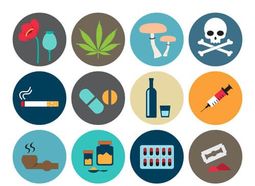People cope with stress in a variety of ways, some of which are less healthy in the long run. The strategies that categorized as “less healthy” are not particularly problematic if they are used only occasionally. For example, it would be unrealistic to think that you will never react to stress by relaxing on the couch and watching tv. However, problems start to arise when the less healthy options are really they only tools that you have developed to manage your stressors and/or these “less healthy” strategies as your "go to", 1st choice to cope with stress.
DID YOU KNOW?
Even though these “less healthy” strategies may feel good in the moment, these tools can actually backfire---that is, your reactions to stress (e.g., eating too much because of stress) can negatively affect your health in the long run (e.g., raise blood pressure, raise blood sugars; lead to depression or anxiety).
So, the goal is to begin to develop more positive strategies to help you better cope with your current stressors and learn how to reduce your use of “less healthy” coping behaviors in response to stress. Check out our positive coping tools for your toolbox.
Proudly powered by Weebly








